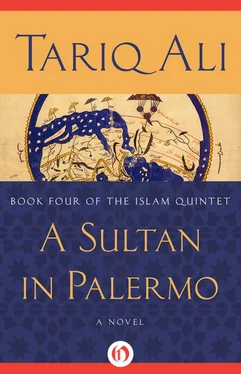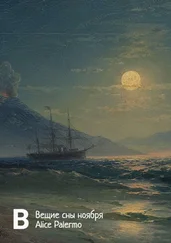Tariq Ali
A Sultan in Palermo
Idrisi’s reflections on beginnings and chance encounters. His first meeting with Rujari.
THE FIRST SENTENCE IS crucial. He knew that from instinct and his study of old manuscripts. How well the ancients understood this, how carefully they chose their beginnings, how easily their work must have progressed after that decision had been made. Where to begin? How to begin? He envied them the choices their world had made possible, their ability to search for knowledge wherever it might be found.
His mother had taught him that the people of the Book, who insist that all knowledge before the time of their own Prophets is worthless, betray their own ignorance. She had told him of how, when the city had been taken by a special breed of the Prophet’s warriors — men who feared knowledge more than death — her grandfather, a venerated mathematician of Qurtuba, had been publicly stripped of his dignity and put to the sword, together with eighty other scholars. The zealots who killed in the name of religion referred to the world of the ancients as ‘the time of ignorance’, a world in which people were unburdened by the need to worship a single god. How they must have blasphemed to their heart’s content. A world without apostates. A smile lightened his face for a moment before the cloud returned.
Unlike us, he thought. We are fated to drown in the whirlpool of eternal repetition. In the Name of Allah the Merciful, and Muhammad his Prophet, his truest Messenger. The only consolation was that the blaspheming Nazarenes were much worse. How could Allah be the father only of Isa? How could the All-Powerful produce just one son? And why had the Nazarenes invented this untruth? It could only be because they were closer in time to the Roman world and its gods. To win converts they had to inject some magic into their creed. How he wished they had kept the old gods or, at least, the best of them. Zeus could have been Isa’s father or Apollo, Ares or Poseidon… no, not Poseidon. He was very stupid. Mariam lived far away from the sea and Yusuf was not a fisherman. Perhaps the lame, lustful Hephaestus had entered… He came up on to the deck of the royal ship and took several deep breaths. Washing his lungs with sea air had become a ritual. He smiled. The sun was about to set. The sea was still calm. Poseidon willing, they would reach Palermo without another storm.
This was his last voyage before the completion of his book. The vessel had encircled the island twice and he had checked each detail in his map of Siqilliya against the actual coastline. Occasionally they had disembarked to collect fresh water and food and the fresh herbs he needed to test his medical formulas. Idrisi was both geographer and physician. Even though the journey had taken less than a month, he was tired. He slept more than usual and in most of his dreams he went back to his childhood — his mother looking at the stars, the cobbled streets of Noto, the tree trunks scarred by lightning, the women milking cows and goats, his father’s pock-marked face — but when he rested in the afternoon he invariably dreamed of Mayya, usually the same dream with hardly a variation. They lay naked in each other’s arms after making love. It was always in her bedchamber in the palace harem, outside which the eunuchs kept watch. Nothing else ever happened. The repetition annoyed him so much that he even thought of going to the dream-interpreter, but something always stopped him.
Last night, for the first time, he dreamt of something different. He was a warrior engaged in combat, but when he woke he had no memory of the enemy. He thought of that now as he stood on the deck, watching the sea change colour, and wondered whether he would have been of any use as a soldier. He was of medium height with delicate features and a soft, fair skin, as if his gender had been decided only at the last minute. The sun had darkened his face, exaggerating the whiteness of his beard. It was neatly trimmed, mimicking the style of a Qurtuban scholar. He was fifty-eight years of age, a time in life that compels most men to think of the past, not the future. And so it would have been with him were it not for the fact that he was possessed by a mighty anger, of which only his two closest friends were aware and even they could not understand its causes. To the Sultan and the courtiers in the palace at Palermo, he was a scholar of some importance and a man of calm temperament. They had no idea of what lay beneath the mask or that he inwardly raged about the oddest things. Once his closest friend Ibn Hamid, whose heart was heavy-laden, had looked at the sky and muttered, ‘O the poetry of the stars’, and Idrisi had responded in an angry tone, subjecting him to a lecture on astronomy and the movement of the Earth. Had he noted how each night a movement was repeated? The ancients had tried to penetrate the secrets of the heavens, but failed. If what he thought was true then al-Quran was mistaken and if al-Quran was mistaken, who had made the mistake? Allah or his Messenger? Ibn Hamid became fearful that his friend might be charged with blasphemy and advised him to leave such questions to the future.
Idrisi’s reply had been a withering look and they had not spoken for the next few days. Now Ibn Hamid, too, had abandoned the island, leaving his friend more isolated than ever. Harsh words had been exchanged and Idrisi accused of providing succour to the foreigners who occupied the island. Perhaps, thought Idrisi, he too should have gone and established a life in Ifriqiya or perhaps Baghdad where the Caliph was a patron of thinkers and poets. But his life was changed by a chance encounter that offered him more freedom than he had imagined possible.
His thoughts flew back to a late afternoon when he was working in the library of Sultan Rujari’s palace at Palermo. He had obtained special permission to do so and was delighting like a child in every new discovery. He recalled the excitement that had gripped him almost twenty-seven years ago when he had first sighted the old Greek al-Homa’s manuscript. Could this be the work of which his paternal great-grandfather had spoken all those years ago in Malaka? His grandfather had entrusted the memory to his father and he could still hear the loud, slightly agitated, voice of his old father punctuating the story by plucking the white hairs out of his still dark brown beard. He spoke of how the qadis, fearful of the power of poetry and its capacity to mislead Believers, had decreed that only three copies of the Arabic translation be permitted so that theologians could study the pagan religions that led to the period of Ignorance in Arabia at the time our Prophet was born.
Twelve men were entrusted with the task. The most skilled translators of ancient Greek, they had translated the works of Galen and Pythagoras, Hippocrates and Aristotle, Socrates and Plato, and even the plays of Aristophanes. All these works were in the Baghdad library. But translators, although carefully chosen, trusted employees of the palace, were not permitted to read the entire work. The calligraphers doing the transcribing were sworn to silence. If they were to divulge the nature of this work to any person — and this included their wives and lovers — the penalty would be swift and the executioner’s scimitar, in a lightning flash, would detach head from body.
His father had smiled. ‘Threats never work in our world. It is possible that if nothing had been said the calligraphers would have copied the work and moved on to their next assignment. The danger excited their curiosity, but while eleven of them accepted the inviolability of a qadis injunction, the twelfth managed to copy half of the first poem and most of the second part and sent it to his family in Damascus. His son, also a translator, came to work in the school in Toledo. He married a woman from Qurtuba. Her grandson discovered the incomplete manuscript hidden underneath al-Quran in an old chest and allowed my great-grandfather to read it in his house. This was how our ancestor discovered that the Greek book had been lodged in secret compartments in the library of Palermo. Special permission had to be obtained from the Caliph before any scholar was permitted access to the hidden section of the library.’
Читать дальше












